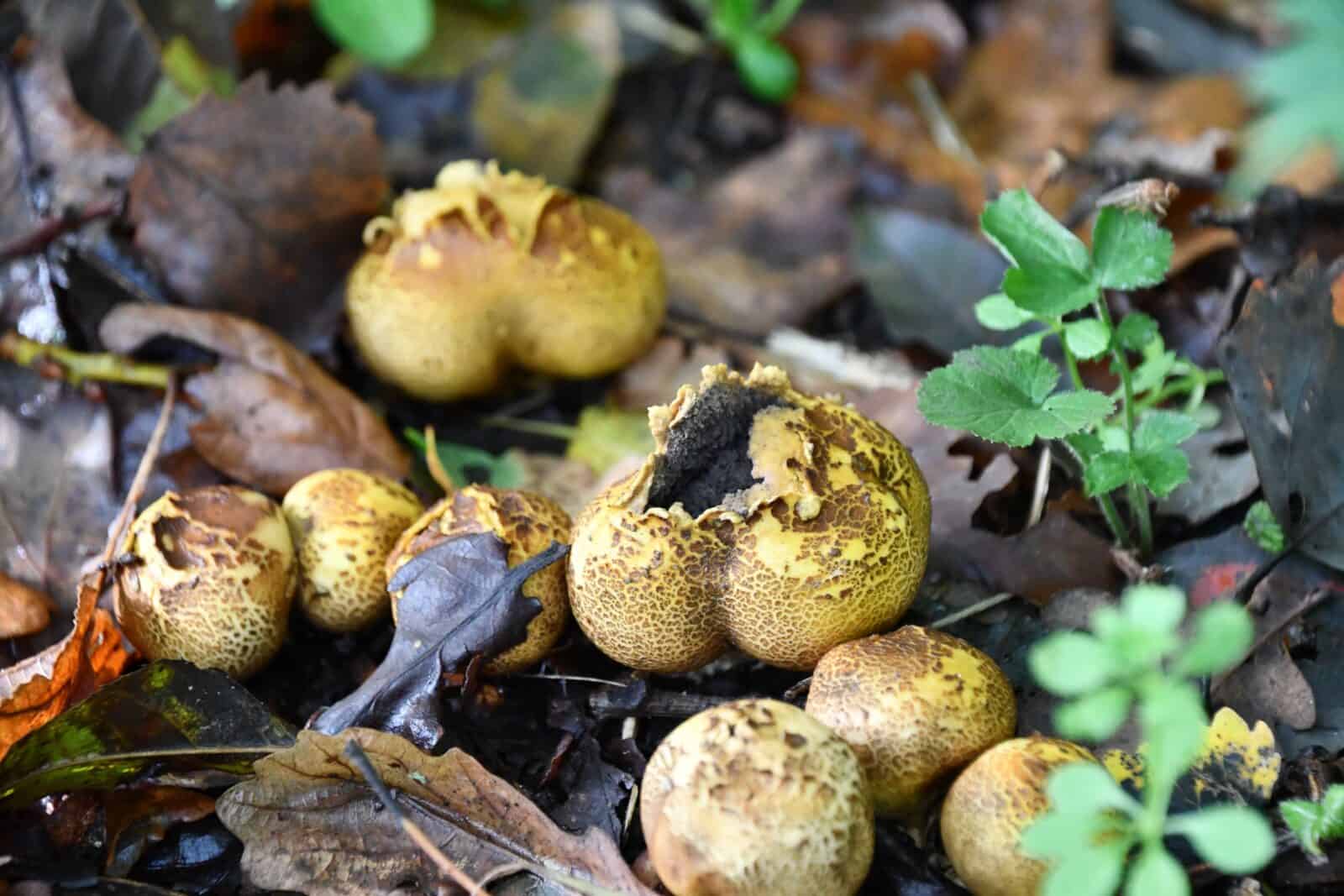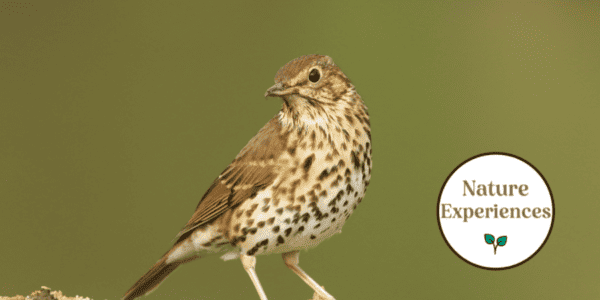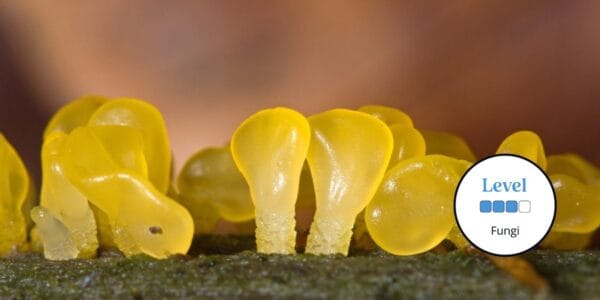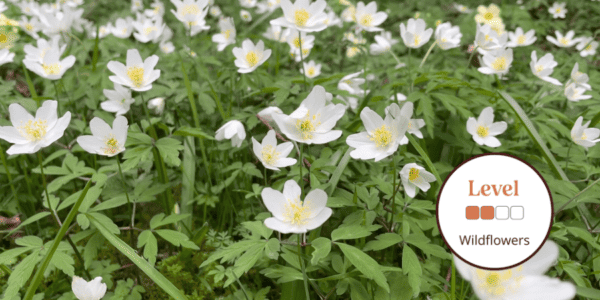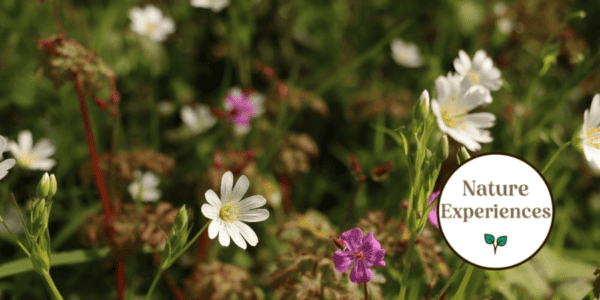This is the perfect 2-day course for beginners looking to learn more about the fungi around them and start to identify fungi groups. You will learn what to look for with valuable observational field skills, as well as being introduced to the world of spore printing and its potential to reveal diagnostic features that will help you identify fungi to genus using a range of written, digital and online keys.
This course will include:
- Morphological features for fungi
- Making field notes and field equipment
- Fungi habitat
- An introduction to spore printing
- Identification features and tips and how to use a range of keys to identify to genus
- Brief introduction to classification and macro-characteristics
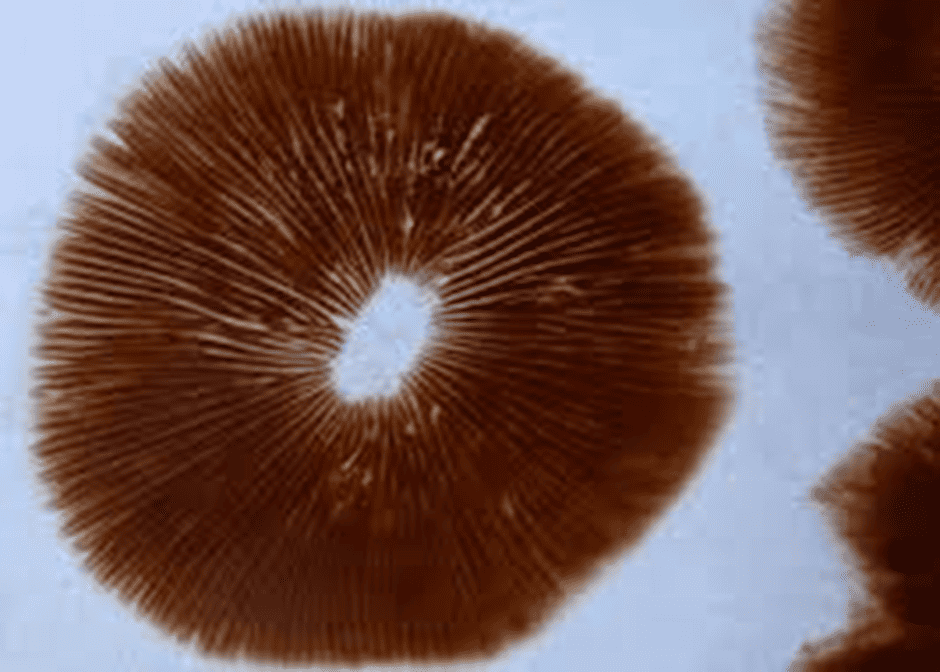
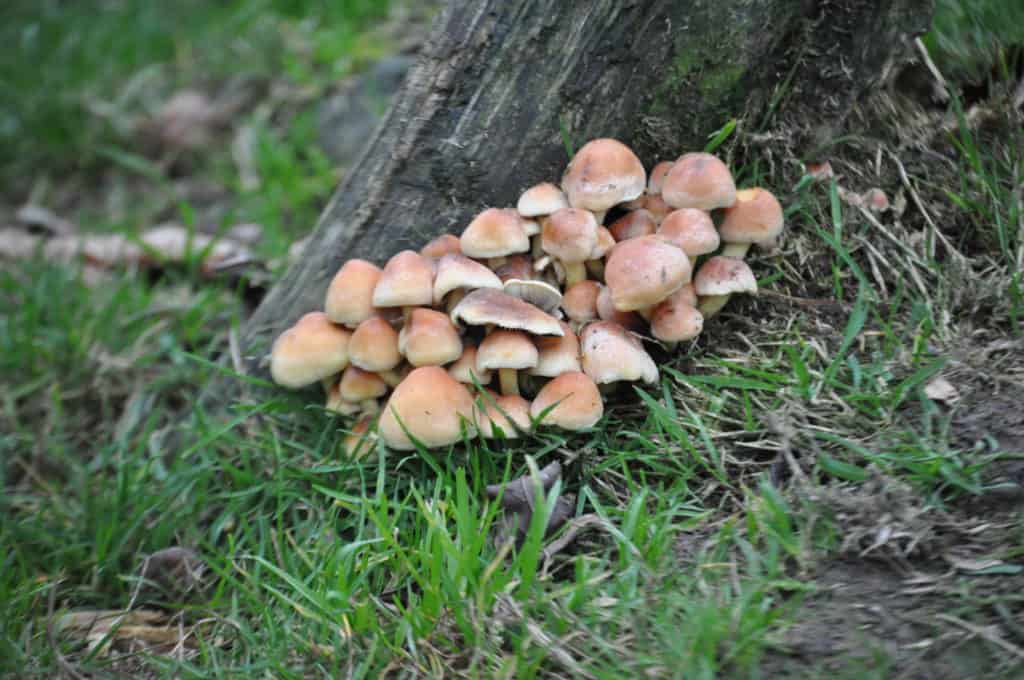
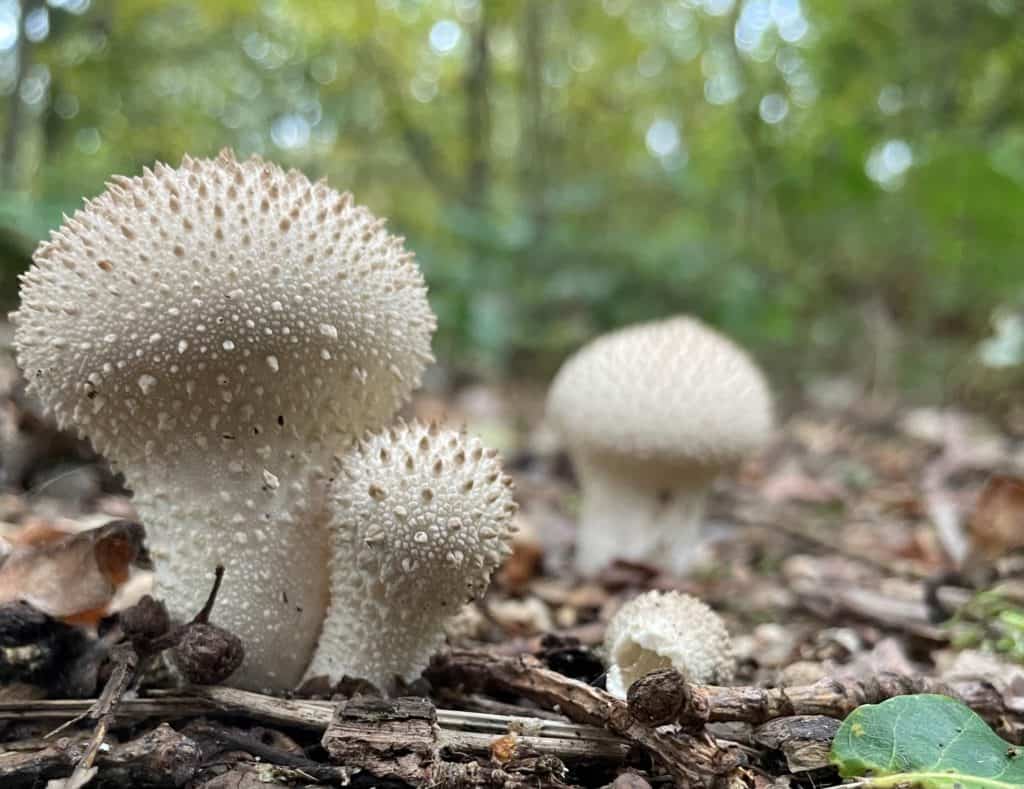
Read More
Please note, this is the 2-day version of our 1-day fungi beginner courses (Autumn Fungi: An Introduction and Autumn Fungi: Beginner Identification).
This is the perfect course for beginners looking to further their fungi identification skills by looking more closely at the characteristics needed to start using keys. On the first day, we will focus on observational skills and the characteristics of fungi that can be used in identification. On the second day, we will explore commonly encountered groups of fungi with a focus on the on spore printing as a technique in the identification process. The course will introduce you to different types of keys and how to use them to identify a species to genus including written, digital and online. You will also gain an understanding of the importance of these species for ecology, conservation, and recording.
By the end of the course, you will be able to:
- Understand key morphological features to begin a fungus identification.
- Describe the variety of habitats in which you can find fungi and how this can be used to make an accurate identification.
- Record useful field notes and use the correct equipment to safely collect fungi.
- Create spore prints from different fungi species and use them to aid ID.
- Understand how to get started with a key, become familiar with different types of keys, and gain experience in using a basic key to genus.
- Understand non-taxonomic and taxonomic classifications, why classification systems are important and subject to change.
- Explain the key morphological features that distinguish agarics, boletes and tooth fungi, how to collect them for identification and explain how to use these features for ID to genus level in agarics.
Who Should Attend? – Nature enthusiasts, students, rangers, early career ecologists.
Knowledge Level – Beginner. Level descriptors can be found on the following web page: Framework and Course Level Descriptors
Prior Knowledge – No existing knowledge, or experience is needed for this course, just a willingness to explore and learn.
PLEASE NOTE: There is no accommodation, or meal facilities included with this course. Refreshments (tea and coffee) will be provided. If we are unable to reach viable numbers for this course, we will inform you of the course cancellation 4-5 weeks prior to the course run. We would recommend when purchasing accommodation and/or travel you should take out your own insurance.
Bookings will close if course capacity is reached.
Please email [email protected] if you have any questions.
About the Tutor
Chris Knowles
Chris is both an ecologist and a consultant field mycologist, carrying out fungus surveys for a variety of clients. He is also an active member of his local fungus group and the recorder for Edinburgh & Lothians.
Chris Ford
Chris Ford has worked in environmental education for 15 years, working at in the London Region at Juniper Hall and Bushy Park and at the Blencathra Centre in the Lake District National Park. He is now working for the RSPB on the Suffolk Coast at RSPB Minsmere Nature Reserve and continuing to share his love for the natural world from wildflowers to wading birds and invertebrates to interesting fungus. When he isn’t working Chris is often out on his bike or out in the garden but always with an eye out for anything interesting that might be spotted nearby.
Example Timetable
Timings for this course may vary, so please check the start and end times for the course runs at the bottom of this page. Please arrive in time for the course to start promptly.
This course will involve both classroom learning and field excursions to cover all of the learning objectives.
Lunch is not included so please bring your own food. Refreshments (tea and coffee) will be provided.
What's Included
The course has been carefully created by expert tutors and educators to help you build your knowledge and apply it within the field surrounded by like-minded individuals.
The course includes:
- Classroom learning covering the theory of the topic
- Field excursions to apply new knowledge
- Expert tuition for which the Field Studies Council is renowned
- Clear objectives and progression
- Refreshments (tea/coffee)
You can rest assured that the absolute best content from an expert in environmental education will be provided. In choosing a Field Studies Council course, you will be joining thousands of people who learn with us each year.
Bursaries and Subsidies
Student Discount
This course is eligible for a student discount. If you are a current student, please use discount code BioStudent20 at checkout for 20% off all Biodiversity courses.
Natural History Bursaries
There are a number of natural history bursaries available to help with the cost of your course. To find out if you and your chosen course are eligible, find out more here.
Before You Attend
What to Bring
- Notebook and pencil
- Lunch and refreshments
- Sensible footwear and clothing for being outdoors
- Hand lens x10
- Penknife
- Any up to date field guide of fungi
Recommended Literature
When you book this course, you will receive a discount code for the Field Studies Council recommended guides below.
There will be a member of staff with first aid training and access to a first aid kit on site. If you have special medical or access requirements, please let us know as soon as possible so we can plan the course.
Opportunities to attend this course
-
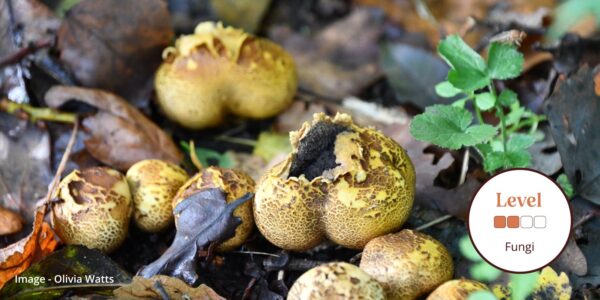
Sat 07, September 2024 10:00 - Sun 08, September 2024 16:30
The venue is unable to offer accommodation with this course, please book local accommodation if you require overnight stays and ensure you take out the appropriate insurance. Please note: there will be a 30 minute lunch break on this course to finish at 16:30. Further information on The Falkland Estate can be found here.
-

Sat 19, October 2024 10:00 - Sun 20, October 2024 17:00
If you would like to book accommodation and meals at Flatford Mill, please email [email protected]. Please note the centre may not be able to guarantee accommodation and meals during this course. Please note that this course has a higher fee because it includes in-course transport to field sites away from the centre.
-

Thu 24, October 2024 09:30 - Fri 25, October 2024 16:00
The venue is unable to offer accommodation with this course, please book local accommodation if you require overnight stays and ensure you take out the appropriate insurance. For more information about the venue and directions click here.
No current dates for this course? Click here to view all the upcoming Natural History courses.
Progress Your Learning
This is a training course from the Field Studies Council, delivered by expert tutors with an approachable learning style. After attending this course, you may like to progress your learning with further relevant courses or branch out into other areas of natural history. The Field Studies Council offers both online and in-person courses, so you can choose the learning style that suits you best.
The course gives you the opportunity to immerse yourself in a new subject and acquire novel skills. Our online portal gives you time to study at your own pace and fit the lessons around your own schedule.
If you have any questions about our courses please check our Frequently Asked Questions or email [email protected].
Group Bookings Made Easy
If you have a group of 10 or more individuals wanting to complete one of our courses, our team are available to discuss your options – from discounts to private team courses. Click here to find out more!
You can rest assured that the absolute best content from an expert in environmental education will be at your fingertips. In choosing a Field Studies Council course, you will be joining thousands of people who learn with us each year.

